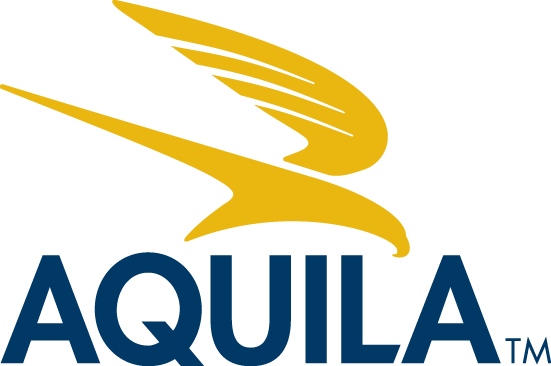If you’re in the process of a commercial lease negotiation, you might find that the landlord asks for a security deposit. We find that security deposits can take many first-time tenants by surprise, and present a cost that they did not expect.
At AQUILA, our tenant representation brokers work with tenants every day, and one of the things we find ourselves explaining regularly is security deposits. In this article, we will tell you everything you need to know about security deposits in commercial leases, including:
- What is a security deposit, and what is it used for?
- Is a security deposit always required?
- How much money is a typical security deposit?
- What variables influence security deposits?
Read Next: What Are the All-In Costs of Relocating My Office?
What is a security deposit?
A security deposit is a payment a tenant makes to the landlord before the lease begins. This payment does not go towards rent, but rather is held by the landlord as “security” against future unknowns that may occur during the lease term.
What are security deposits used for?
Most often the deposit is used after you move out of the space to repair any damage that may have occurred before the new tenant occupies the space.
If the landlord uses the deposit to repair damages at your lease expiration, they will provide a receipt.
Requiring a security deposit is also a way for landlords to hedge the risk of a tenant not paying rent. If a tenant defaults on a rent payment, the landlord will be able to pull funds from the security deposit to maintain an income stream, at least for a short time.
Security deposits for commercial leases have very little regulation, giving landlords the freedom to charge what they deem necessary and use the deposit how they see fit (even collecting interest on the payment). Texas is like many other states in this aspect, whereas landlords in a small handful of other states face harsher regulations.
Is the deposit refundable?
The deposit is refundable, and it cannot be used to repair normal wear and tear. So if no major damage occurred during your lease and you consistently pay your rent on time, you will likely be refunded the entire deposit within 30 days of your move-out.
Are security deposits required?
Landlords are not required to put a security deposit clause in the lease, but including one is standard practice for most landlords.
Because of the added safety net a security deposit provides, it would be rare for a landlord or owner to pass up that protection.
How much do security deposits typically cost?
The amount of a security deposit varies on a case-by-case basis and is typically presented in terms of months of rent.
In Austin, you will often see landlords asking for a security deposit equivalent to one month’s gross rent, dependent upon other factors such as TI allowance and tenant credit.
How do security deposits vary?
Landlords take into account the tenant improvement allowance and the creditworthiness of the tenant when determining the security deposit amount.
Established companies with good financials and a history of on-time payments will probably see a minimal security deposit. It’s even possible for large, multinational corporations like Google or GE to have security deposits waived altogether.
On the other hand, startups and small businesses with little or no credit history can expect to pay higher security deposits due to their uncertain future.
Additionally, if you require a higher TI allowance, you can expect a higher security deposit because of the money the landlord will be putting in upfront.
It is important to keep in mind that security deposits are a negotiable part of the lease, so negotiating the security deposit down is one of the benefits of hiring a tenant representation broker.
Common Security Deposit Variables
Security deposit requirements can take on a number of different forms, so it is important to understand the terms included in the lease.
A few of the most important variables that should always be outlined in your lease are:
- Reimbursement
- Interest payments
- Landlord usage
Reimbursement
The timing and payment details for your reimbursement should be agreed upon in the lease. Texas law requires it to be returned within 30 days of your evacuation and that it cannot be used for covering repairs on natural depreciation (normal wear and tear).
Interest Payments
If your security deposit is a significant amount, you should discuss with your landlord the possibility of earning interest on the payment over the lifetime of your lease.
A few states like Florida, Massachusetts, and New York have laws that outline how interest payments should be handled on security deposits. Texas is one of the many states in which interest payments for security deposits are negotiated during the leasing process.
Landlord Usage
Finally, you can outline the scope of use the landlord has with the money as it concerns non-lease-related transactions. (Commercial landlords have few restrictions on how they use your security deposit.)
In Texas, landlords are not required to put your security deposit in a separate account, so long as they return the deposit to you when you are entitled to it. Outlining where your security deposit is kept and how it is used can limit the landlord’s usage of your money.
The bottom line is that a security deposit is a standard element in almost every commercial lease. It is one of the many elements of your lease contract that your tenant rep broker can help you negotiate.
Having a tenant representation broker who is knowledgeable about the market and has strong relationships with landlords and owners is important in getting the best deal possible on your security deposit.
To keep learning about the elements of a commercial lease, and find out what else can be negotiated in your lease, check out these helpful articles.
- What Are Commercial Real Estate Operating Expenses (Op/Ex)?
- Your Guide to the Elements of a Commercial Lease (Terms, Definitions)
- What Is a Tenant Improvement Allowance and What Does It Cover?
Or, to talk to a tenant representative about negotiating your commercial lease, schedule a consultation today.














